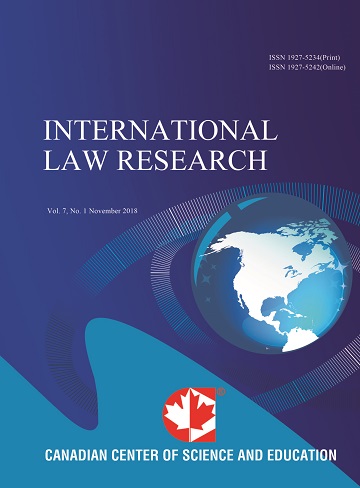On the Restrictive Jurisdictional Immunity of AIIB in China
- Hu Ren
- Zhaoxin Jin
Abstract
The jurisdictional immunity of international organizations is a necessity for them to independently perform their functions and achieve their purposes. Therefore, the international community generally grants absolute jurisdictional immunity to international organizations. China has always advocated the position of absolute jurisdictional immunity, however, in the AIIB Agreement and the Headquarters Agreement between China and AIIB, China turn to the view that AIIB only share restrictive jurisdictional immunity. The change of China’s opinion on AIIB is not only the result of the development of international organizations immunity, but also the result of AIIB’s functional necessity. The fact that AIIB only enjoys restrictive jurisdictional immunity in China makes AIIB possible to be sued in China’s domestic courts. If the eligible plaintiff bring a lawsuit against AIIB in China, the courts could handle the case in accordance with domestic laws, the AIIB Agreement and the Headquarters Agreement to alleviate the dilemma of China’s lack of international organization law.
- Full Text:
 PDF
PDF
- DOI:10.5539/ilr.v10n1p185
Journal Metrics
h-index (2017): 2
i10-index (2017): 0
h5-index (2017): N/A
h5-median (2017): N/A
Index
- CNKI Scholar
- COPAC
- CrossRef
- DTU Library
- EuroPub Database
- Excellence in Research for Australia (ERA)
- Ghent University Library
- Google Scholar
- Harvard Library
- Infotrieve
- Jisc Library Hub Discover
- LOCKSS
- Open J-Gate
- PKP Open Archives Harvester
- Publons
- ROAD
- Scilit
- SHERPA/RoMEO
- Stanford Libraries
- Ulrich's
- UniCat
- Universe Digital Library
- UoS Library
- WorldCat
Contact
- Joseph TaiEditorial Assistant
- ilr@ccsenet.org
